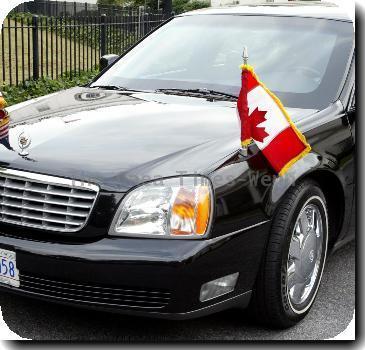Medicare buy-in for middle-aged would be offered during transition to new insurance system
By Ricardo Alonso-zaldivar, APTuesday, December 8, 2009
Dems weigh temporary Medicare expansion
WASHINGTON — Senate Democrats remained at odds Tuesday over President Barack Obama’s health care overhaul, with moderates cheering a move away from a new government insurance plan and liberals demanding in exchange an expansion of the federal Medicare program.
Time is of the essence as Democrats strive to pass Obama’s health care remake in the Senate by Christmas.
On the floor, senators debated an amendment to place tight restrictions on abortion funding, but the real action was in negotiations between Democratic moderates and liberals over the creation of a government insurance plan to compete with private carriers. Such a so-called public option is now in the bill, but supporters acknowledged Tuesday that it may not have the votes to pass.
“My worry is the public option is disappearing, or it gets very much weakened,” said Sen. Jay Rockefeller, D-W.Va, representing liberals in the negotiations.
In exchange for giving up on a new government plan, liberals are demanding a major expansion of Medicare and additional aid for low-income uninsured. Medicare would be opened up — at least for a few years — to uninsured people age 55 to 64. A bid to expand the Medicaid program for low-income people failed to win support.
“That’s an example of not getting what you want,” Rockefeller said. Other alternatives to help low-income Americans are still on the table.
Moderates welcomed the idea of replacing a new government plan with private insurance offered under the supervision of the Office of Personnel Management, which oversees the federal employee health benefits system, but they raised questions about expanding Medicare, and they flat-out objected to broadening Medicaid.
Maine Sen. Olympia Snowe — one Republican who may vote for the Democrats’ bill — also raised a warning flag. “I’m not sure ultimately what is the purpose” in expanding Medicare coverage, she said. The American Hospital Association, which supports the broad goals of the legislation, sent an alert to its members urging them to contact lawmakers in opposition to the Medicare expansion. Medicare pays hospitals less than it costs them to provide service, the group said.
The Democratic negotiators — five liberals and five moderates — are under pressure to reach at least a tentative deal by Tuesday. The bill now includes a government-run plan that states can opt out of, unacceptable to moderates whose votes Majority Leader Harry Reid, D-Nev., needs to overcome Republican delaying tactics and move the bill to final passage.
Rockefeller said he personally doesn’t think the public plan is dead, but it’s evident the negotiations are taking place because Reid lacks the 60 votes he needs.
The latest public plan idea bears little resemblance to the original proposed by liberals, and embraced by Obama, during the 2008 presidential campaign. That called for the government to sell insurance to workers and their families in competition with industry giants like UnitedHealthcare.
But instead of Medicare-for-the-masses, it would be Blue Cross Blue Shield or Kaiser Permanente, albeit with a government seal of approval from the department that handles the health plan for federal employees, including members of Congress. The Office of Personnel Management — OPM — would become an instantly recognizable federal acronym, like FDA and CDC.
The emerging compromise calls for the government to lend OPM’s seal of approval to private plans that would be offered across the nation. The plans would be available through new state insurance markets, called exchanges. The exchanges would function like an insurance supermarket for those who now have trouble finding and keeping affordable coverage — people buying on their own and small businesses. Most of the 30 million consumers in the exchanges would have government subsidies to help pay premiums.
“It’s probably the closest proposal thus far that could get the support of 60 senators. It’s got legs,” said Sen. Max Baucus, D-Mont., chairman of the Finance Committee.
Liberals say they won’t settle for the compromise unless they get something back.
Under discussion is a Medicare “buy-in” for people 55 to 64 that would be available until government subsidies start flowing in 2014 to new health insurance markets for people who have trouble getting and keeping affordable coverage. Liberals also want a Medicare option permanently available after that date.
Republican Leader Mitch McConnell of Kentucky ridiculed the Democrats’ late changes, and suggested adding more people to Medicare could undermine the program’s already shaky finances. He called for Democrats to scrap the bill and start over.
“Americans would rather get it right than scurry around throwing together last-minute untested experiments to get 60 votes before Christmas,” McConnell said.
Medicare now covers seniors 65 and older, as well as disabled people of any age. People in their mid-50s are among the most vulnerable to losing coverage, particularly in an economy where employers are still cutting jobs. But buying into Medicare would not be cheap. A current buy-in available to those 65 and older who don’t qualify because of work history costs about $550 a month.
Associated Press writer Erica Werner contributed to this report.
Tags: Access To Health Care, Barack Obama, Christmas, Government Programs, Government Regulations, Government-funded Health Insurance, Health Care Industry, Health Care Reform, Health Issues, Industry Regulation, North America, Personal Finance, Personal Insurance, Political Issues, United States, Washington





